Shortages
Economics
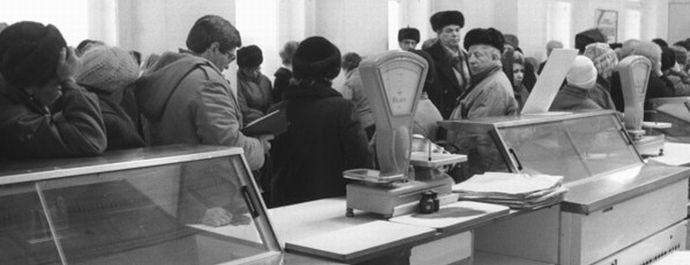
The Eastern-bloc countries’ economic system was supposed to provide each inhabitant with a decent income and a wide range of free services, as well as bringing poverty to an official end. In fact, while wages did remain livable, it was supply that posed a problem through the late 1980s. The preference given to heavy industry and defense over the production of consumer goods has often been given as the reason for these shortages. The debate dates back to the eras of Stalin and Khrushchev. But this logic ignores the role of the artificially low prices maintained through state subsidies, which inflated demand for goods and staples that weren’t in stock. In fact, the shortages in the USSR and the other satellite states were not occasional errors but a structural element of their economy. In this “shortage-based” economy, some phases were more critical than others. That was the case, for example, in the USSR and Poland in the 1980s, when ration cards were printed for foodstuffs. The state was also obliged to find alternatives to make up for the housing shortage. Different states used waiting lists (from 10 to 15 years to obtain single-family housing in the early 80s) and organizing communal housing for several families under one roof. These shortages of common consumer goods, or more sophisticated equipment like cars and TVs, fed the growing opposition movements and led to the development of an informal, parallel economy in which prices were twice as high as in the state-run marketplace, as well as to corruption within the ranks of the nomenklatura.
Archive
Rationing cards for staple items
Like in the 30s, in the 80s, the USSR had to resort once again to ration cards for staples.
country: Soviet Union / year:
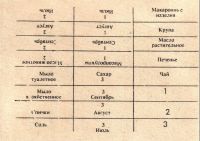
Like in the 30s, in the 80s, the USSR had to resort once again to ration cards for staples. The cards seen here were valid for three months for olive oil, soap and matches.
Poster against plentiful production on state-run farms
“You shouldn't show off!”
country: Soviet Union / year:
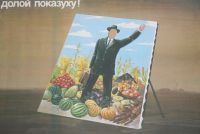
“You shouldn't show off!” This poster criticizes state-run and Soviet farms’ theoretically abundant production. In fact, while agricultural production was not exceptionally hard hit by the shortages, nor did it allow farmers on state-run farms to prosper. Which is why, in order to discourage black marketeering, farmers were allowed to sell their private production at kolkhoz markets, where prices were not set by the state. While those markets did allow farmers to supplement their income, they were not actually able to become as wealthy as this poster implies.
Poster from the 70s about food shortages.
The word “poverty” was practically banned from official Soviet discourse.
country: Soviet Union / year:

The word “poverty” was practically banned from official Soviet discourse. Yet in the early 80s, surveys in the USSR showed that 90% of those questioned had been unable to purchase foodstuffs – particularly meat, eggs, fruit and vegetables – several times a month. On the other hand, provisions seemed sufficient for other items, including fish, sugar and… vodka!
Margaret Thatcher’s visit to Poland in 1988
In November, 1988, the British Prime Minister, Margaret Thatcher, paid an official to General Jaruzelski’s Poland.
country: People's Republic of Poland / year:
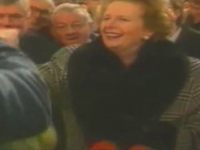
In November, 1988, the British Prime Minister, Margaret Thatcher, paid an official to General Jaruzelski’s Poland. In a social climate marked by negotiation with the banned opposition union Solidarnosc, the Polish government wanted to give the “Iron Lady” the impression that the population could now find what they wanted on the market thanks to recent “reforms,” so that she could safely consider Western financial aid for Poland.
Interwiew with a Polish butcher at a time when ration tickets for meat were being introduced
During the 70s, Polish debt increased twentyfold.
country: People's Republic of Poland / year:
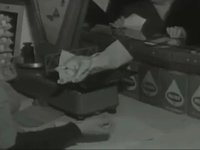
During the 70s, Polish debt increased twentyfold. The failure of economic policy led to sudden, sharp increases in consumer-goods prices in the early 80s. On July 1st, 1980, the government announced an increase in the price of meat, setting off demonstrations and strikes. Nine months later, the system of meat-rationing cards was established, but the butcher seems skeptical.
Rumanian propaganda film about high agricultural production rates in 1971
In the early 1970s, the collectivization of Rumanian agriculture seemed complete.
country: People’s Republic of Romania / year:
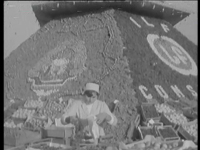
In the early 1970s, the collectivization of Rumanian agriculture seemed complete. Yet the state-run or collective farms that you can see in this excerpt could not seem to produce enough to fulfill demand. Rumania had invested single-mindedly in industry, and agricultural shortages were increasing through the 1980s, despite propaganda images like these. Agricultural production statistics were also regularly falsified during this period.
Book shortages
In both Poland and the USSR, the entire process of producing and distributing books
country: Soviet Union / year:
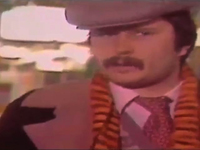
In both Poland and the USSR, the entire process of producing and distributing books was run by the Minster of Culture, who controlled the publication schedule. In addition to strict censorship which limited the number of titles available, the paper shortage accentuated the development of a parallel market of western books that were circulating more and more widely by the 80s.
Polish police discovers a stockpile of counterfeit ration cards
In the early 80s, since the Polish government was unable to maintain the level of importation of animal feed
country: People's Republic of Poland / year:
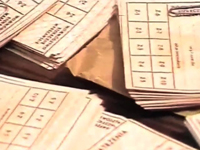
In the early 80s, since the Polish government was unable to maintain the level of importation of animal feed, meat production collapsed and meat prices skyrocketed. Per capita meat consumption decreased by 30%, and the government had to put a system of ration cards into place, setting off strikes and encouraging both the black market and the production of counterfeit ration tickets.
Apartments are luxury items. A Polish television report on the construction industry.
Housing construction is one of the sectors affected by shortages.
country: People's Republic of Poland / year:

Housing construction is one of the sectors affected by shortages. Despite governmental efforts, building of well-equipped apartments does not meet demand. Consequently, these apartments are only accessible to a small minority – members of the nomenklatura – or after extremely long waiting periods, of up to 10 years or more.
Massive shortages in East Germany
In the late 1980s, Erich Honecker’s East Germany was confronted with massive shortages
country: German Democratic Republic / year:
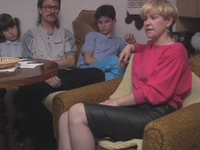
In the late 1980s, Erich Honecker’s East Germany was confronted with massive shortages. Granted, consumption of staple foods was high, and fixed, state-subsidized prices that had been stable for some 30-odd years allowed the population to live decently. But demand had evolved, and families wanted new goods (hi-fi equipment, cars, furniture etc) which were heavily taxed and for which supplies were low, leading to waiting lists that seemed unbearably long to a generation that had watched its counterparts in the West join consumer society; so the social climate had become tense by 1989.